Moto Gymkhana
The ancient Japanese art of riding slow very quickly
Ever see someone do something super cool, and think you’d really like to try doing it yourself? Free climbing El Capitan, bull riding, and body suspension never made my list, but gymkhana sure did. I’ve had a burning desire to ride a small motorcycle through a forest of multi-colored cones littered about a huge parking lot for years. Recently, SoCal’s own M Gymkhana and KTM gave me and fellow gymkhana-curious editor, Troy Siahaan, the opportunity. Like our ice racing expedition a few years ago, the gymkhana experience was a fun and challenging task.
“Moto Gymkhana is hard!” says Siahaan. “It emphasizes bike control in a way that’s completely different from track riding. You’re managing all the controls in order to turn as tightly as possible without falling over. I have a whole new appreciation for the guys and gals competing in Japan who I’ve seen on YouTube.”
Whether you’re a recent MSF graduate or a seasoned motorcyclist, a day of gymkhana riding will endow you with a renewed appreciation of bike control. From steering with your hips, looking ahead to a corner that’s behind you, clutch, throttle and brake manipulation gymkhana manifests all the basic motorcycle skills, then elevates those skills the faster you go.
“Think of gymkhana as the MSF experienced rider course on steroids,” says Siahaan. “The skills you learn from attending M Gymkhana directly translate to regular street riding. Making U-turns, avoiding obstacles, manipulating the controls – all are things you can learn here.”
Bike control isn’t the only skill necessary for increasing your speed around a gymkhana course, observation and memory are just as important. Cones of different colors indicate which direction to turn, as well as how many times to make the turn. M Gymkhana uses blue cones for left turns and red cones for right turns. Sometimes these turns are sharp, other times wide. Blue or red cones with yellow tops indicate a turn of more than 270 degrees before proceeding. Sometimes you touch an imaginary line with your front wheel, while other times you enter a gate, execute a U-turn and exit through the same gate. It’s all confusingly fun as long as you don’t get frustrated.
“The longer the course is, the more the cones start to blend together,” says Siahaan. “It’s almost like being asked to solve an algebra test while riding.”
Memorizing the course is the best way to lower your lap times. You’ll be anticipating what comes next, preparing for the maneuver in advance and executing in a fluid motion rather than having to think about what you’re doing. It’s just you against the clock, with no getting an excellent drive off a corner and onto a long straight to make up time. The only way to lower your laps times is going quicker through the slow stuff – which is pretty much the entire course.
James Bush (JB) and his wife Katie are the proprietors of M Gymkhana. Since 2012, they’ve been organizing gymkhana events at various venues around California. “JB is a great ambassador for the sport in America,” says Troy. “He knows how to handle nearly any motorcycle around the courses he creates in his head, so if someone were to show up and claim their bike couldn’t do the course there’s a good chance JB will prove them wrong…on their own bike!”
The gymkhana couple encourages motorcyclists of any skill level to bring their own bike – the motorcycle you are most comfortable with – and give M Gymkhana a try. Or, if you don’t want to chance dropping your precious, try a 390 Duke. For 2016, KTM became an official sponsor of M Gymkhana.
“KTM sponsoring the series with the 390s is a great idea. They are small and nimble, so newer riders won’t be too intimidated, yet have enough torque to jump from one section to another without needing to change gears. Plus with all the crash protection they come with, a rider doesn’t have to worry about dropping their own bike,” says Troy.
The 390 Duke isn’t exclusive to any one person for an entire day, but they are available to use throughout the day at no extra charge. To come to an M Gymkhana event watch and take a few practice laps aboard at KTM 390 Duke JB charges only a $15 pittance. An M Gymkhana day aboard your own bike will only set you back $75 to $130, depending on venue and amount of days.
For more information, event dates and venues check out the M Gymkhana website, sign up, then go have a blast. It’ll be an afternoon well spent, challenging yourself, improving your skills while having fun chasing better lap times. Bring a friend because a little competitive camaraderie between riding buddies makes the cold beer at the end of the day taste better!
A former Motorcycle.com staffer who has gone on to greener pastures, Tom Roderick still can't get the motorcycle bug out of his system. And honestly, we still miss having him around. Tom is now a regular freelance writer and tester for Motorcycle.com when his schedule allows, and his experience, riding ability, writing talent, and quick wit are still a joy to have – even if we don't get to experience it as much as we used to.
More by Tom Roderick



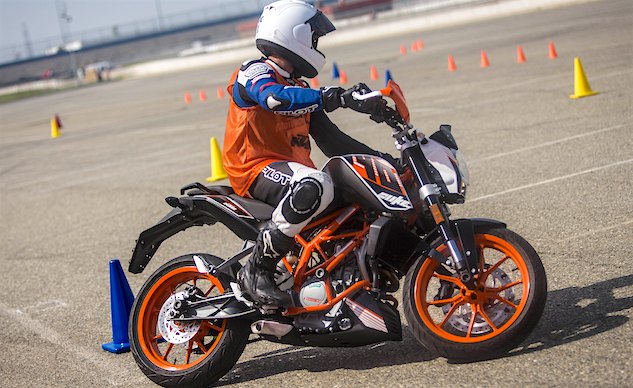
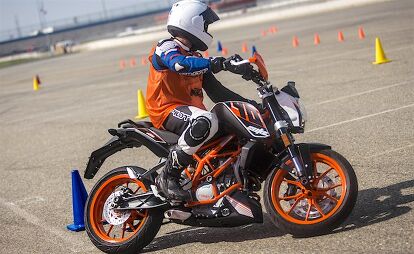










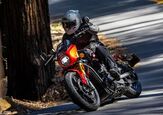
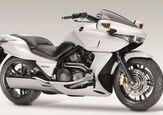
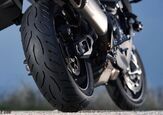
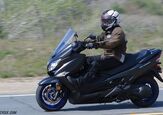
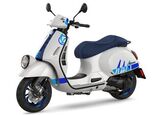
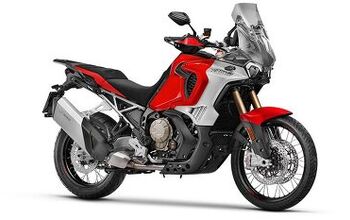
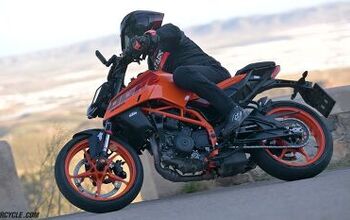
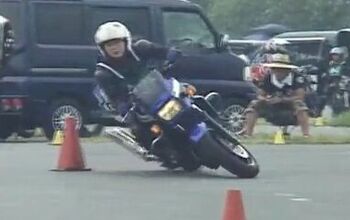
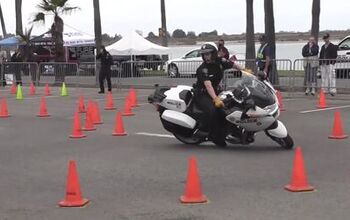
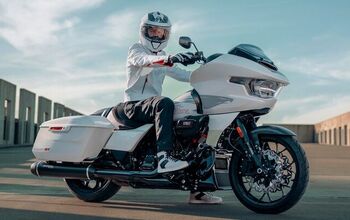
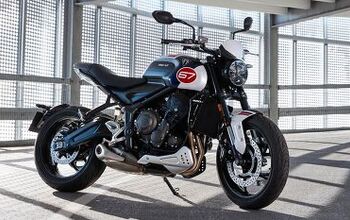

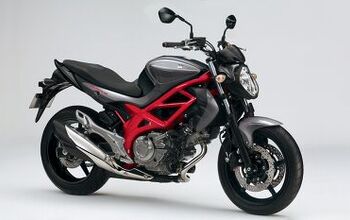
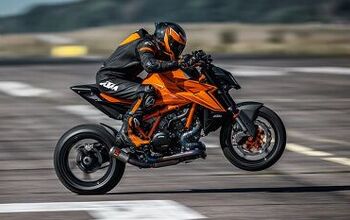
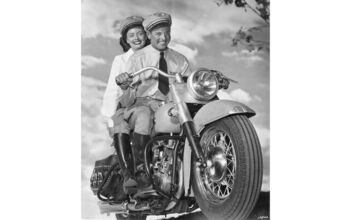
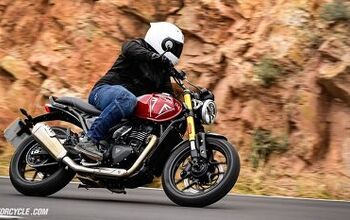
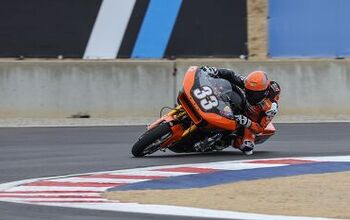
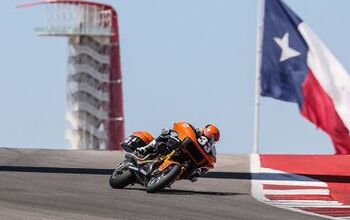
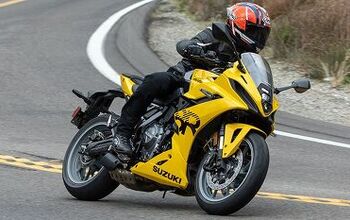

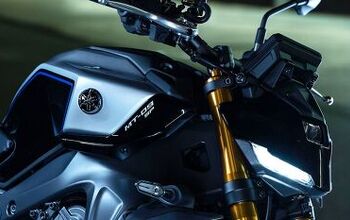
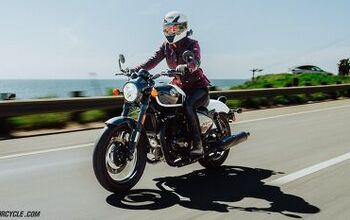
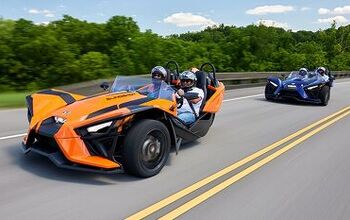
Comments
Join the conversation
https://youtu.be/nkC7LZLn6XE
these are top notch guy in Japan
So I finally got around to trying this. It's good fun!
And James and Katie are great people.
Give it a try.